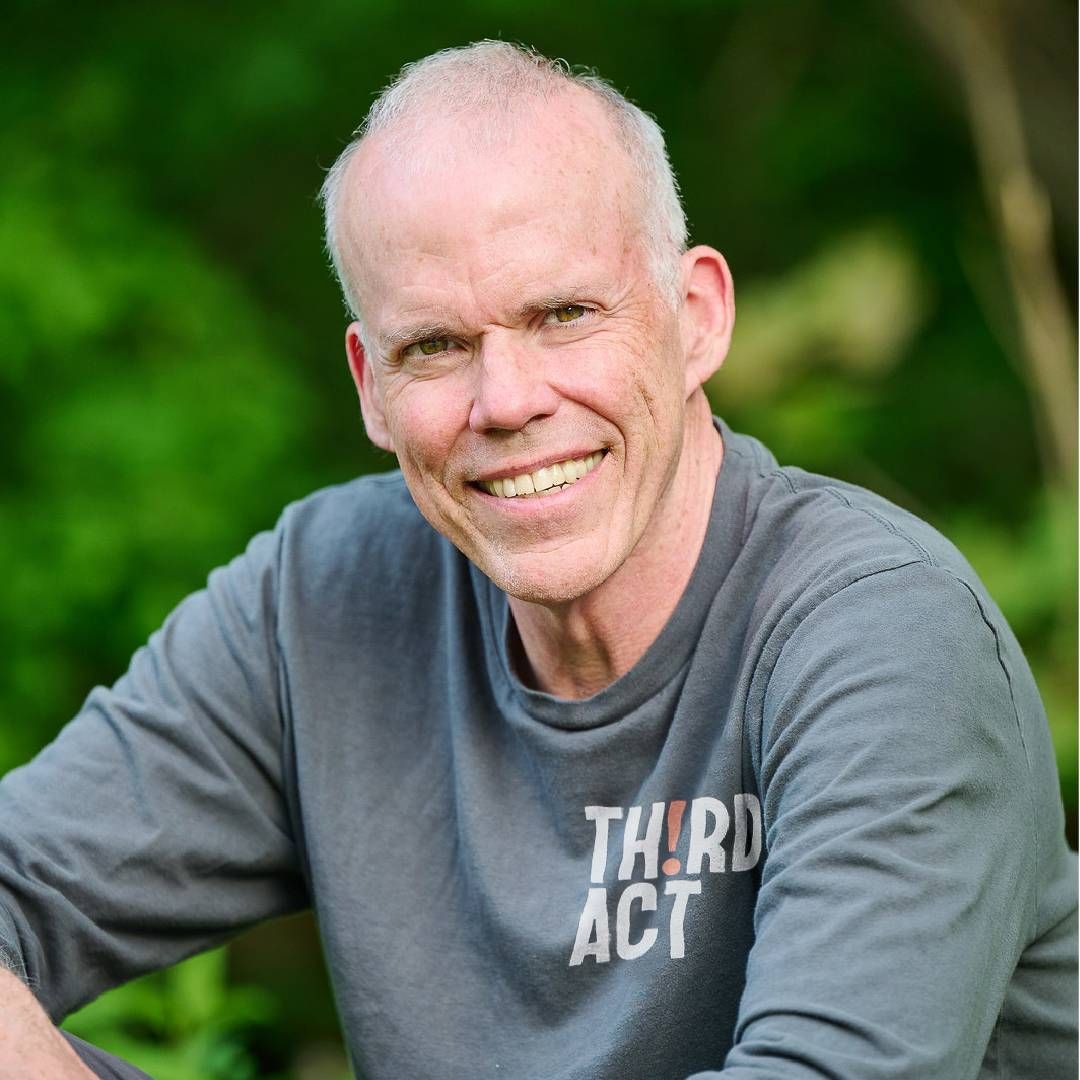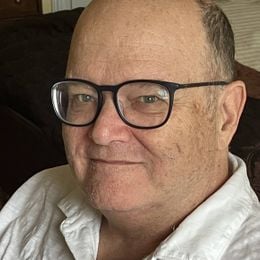Bill McKibben: Older Adults Can Save the Planet
Author, educator, environmentalist and founder of Third Act, the activist group for people aged 60 and over
Bill McKibben has spent most of his life working to wean the world off fossil fuels, which, when burned, produce pollutants responsible for climate change and the catastrophic damage it causes.

He has written 20 books, including "The End of Nature," the first to explain climate change to nonexperts. In 2021, he founded Third Act, a group for people 60 and over that demonstrates against energy companies and the banks that finance them.
After being named an Advocate for Aging, McKibben, who is 61, agreed to talk about some of the biggest issues older adults will face in this fractious election year. This interview has been edited for length and clarity.
On critical aging issues that are largely being ignored
I have to say something about climate change because it actually is something older people ignore, even though there's a lot of research showing that older people are the people most impacted by natural disasters. It's physically hardest for them to move when a hurricane's coming — hardest to uproot themselves, find someplace new and start over.
"The deepest question facing older adults is probably a variation on one facing us all: the loss of a sense of community in favor of a highly individualized world where it is every man for himself."
In a larger sense, the deepest question facing older adults is probably a variation on one facing us all: the loss of a sense of community in favor of a highly individualized world where it is every man for himself. I think that's acutely felt by older people because we have a vestigial memory of a different world before that. It's particularly difficult for older people who have any hope of, say, aging in place. That requires a functioning community around you to make that happen. So that's really one of the overarching things we work on.
On the inspiration to start Third Act for activists 60 and over
The fossil-fuel divestment campaign (organized by 350.org, a McKibben group that has attracted younger people) was largely on college campuses, so I got to know all the leaders of the Youth Climate movement in their very first campaigns. And then I got to know wonderful people like Greta Thunberg (a 21-year-old Swedish climate-change activist).
That was completely wonderful. I have just heard a few too many people my age say, "Oh, it's up to the next generation to solve these problems." That sounded to me both ignoble and impractical for all their energy and intelligence and idealism.
"If you're in your 60s or 70s or 80s now, your first act was in that period of great economic, cultural, social, political transformation of the 1960s and 1970s."
Young people by themselves lack the structural power necessary to make change on the scale we need in the time we have. As I started thinking about who may have it, I focused on people my age. There are 70 million of us over 60 and 10,000 more turn 60 every day, which is as many people as are born in this country every day. And we punch above our weight politically because we all vote and we ended up with most of the country's financial assets to ensure we are in a good position to put pressure not only on political actors, but economic ones.
On rekindling older adults' belief that they can effect change
The conventional wisdom has been that it's useless to try and organize older people for progressive change because people become more conservative as they age, for which there's a certain amount of statistical evidence. But it seems less true all the time, and this is one of the key insights of our work with Third Act.
If you're in your 60s or 70s or 80s now, your first act was in that period of great economic, cultural, social, political transformation of the 1960s and 1970s. That's in our generational DNA. Our job at Third Act has been recapturing that as people come into their third acts. So far, we've been successful, both in terms of gaining members and winning fights. We've just come off this massive victory, persuading the Biden administration to stop granting permits for new LNG export facilities, which might be the biggest loss that Big Oil has taken yet.
On making an asset of one's age
We had this big campaign against the banks that fund fossil fuel companies. We shut a bunch of them down for a day in March 2023 — 100 demonstrations in 100 cities across America. We shut them down by sitting in rocking chairs. Hundreds of them all over the place. The Times called it the rocking chair rebellion.
On other ways older Americans can work to make things better
We don't think you can solve the climate crisis without also addressing the democracy crisis in our country. The challenges to the climate and to our democracy are two things we did not anticipate in our youth. We'll be heavily engaged there.
"Our trouble is that we don't have that time. Eventually is, you know, not fast enough."
On how to discuss climate change with people who don't believe in it
The polling shows about 70% of Americans understand that we have a real climate problem and, in fact, want the government to do more about it. Partly that's because movements have done a good job and partly that's because we've had so many fires and floods and other disasters — at a certain point you're going to ask, 'Who do you believe, Fox News or your own lyin' eyes?' The problem with climate at this point is making people aware that we can be doing important things as a society to speed up this transformation (to clean energy). That's a large part of our work, helping people feel their own power.
On what to expect in the near future
You know, we now live on a planet where the cheapest way to produce power is to point a sheet of glass at the sun. That's a miracle in physical terms, one of the biggest changes in our lifetimes. The only bigger physical change is the fact that we've just had the hottest year in the last 125,000.
These are such monumental changes that over time, economics alone will produce the transition that we need. Our trouble is that we don't have that time. Eventually is, you know, not fast enough. Because climate change is a timed test. Once you have melted the Arctic, nobody has a good plan for how you're going to freeze it back up again. And so we have a very few years to try to speed up this transformation, and that means things like enacting the Inflation Reduction Act, bolstering clean energy, and standing up to the fossil fuel industry.


